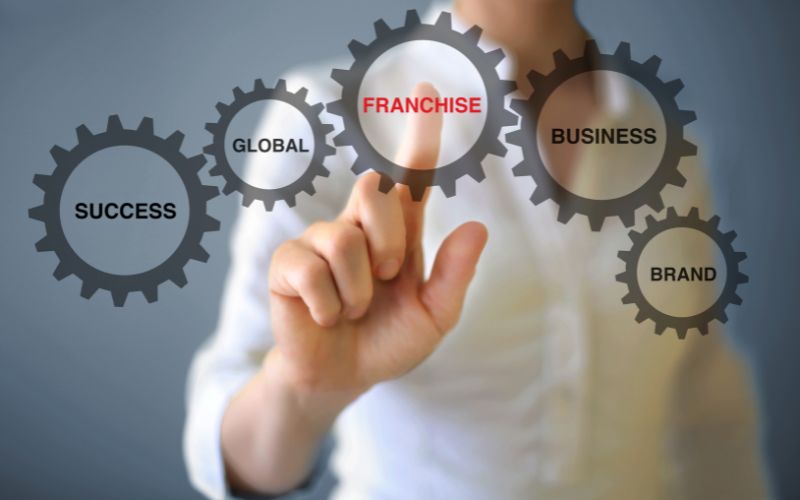Franchises to Avoid for the E-2 Visa (And Smarter Alternatives)
Investing in a franchise to pursue an E-2 investor visa is more than a business decision—it’s a personal milestone. You’re not just buying into a brand—you’re shaping your life, your family’s future, and your contribution to the American economy.
While a franchise can offer structure, training, and name recognition, not all franchises are created equal when it comes to the scrutiny applied under E-2 rules. Some industries routinely raise red flags with immigration officers or carry elevated business risks. Choosing the wrong one can lead to financial and immigration setbacks. But with the right insight, you can make informed, strategic choices that support both your visa approval and long-term business success.
Below, I’ll outline the five franchise types you should approach with caution, grounding each in real data. Then, we’ll explore safer, high-potential alternatives that align with E-2 requirements—and reveal how a trusted consultant like Adam Goldman at FranchiseVisa can help you make the right move.
Why Franchise Choice Matters More Than You Think
An E-2 visa application is evaluated not only on your personal qualifications but also on the quality and structure of the business you choose. Immigration officers look for three core elements:
Substantial Investment
There is no fixed dollar threshold, but most successful E-2 cases involve investments between $100,000 and $200,000, particularly in service-based or franchise models. While lower investments are possible, applications under $80,000 are far more heavily scrutinized. The U.S. Department of State expects evidence that your capital is truly “at risk” and sufficient to make the enterprise operational.
Non-Marginality
The business cannot exist merely to provide a living for you and your immediate family. It must show potential for job creation and broader economic impact. For example, a sole-proprietor consulting firm with no employees would likely be deemed “marginal,” while a property management or senior care franchise employing multiple staff would more clearly meet this requirement.
Active Role
The E-2 visa is intended for entrepreneurs and managers, not passive investors. You must demonstrate that you will direct and develop the enterprise on a daily basis. Franchises that delegate nearly all decision-making to corporate headquarters may weaken your case if your role appears limited.
In other words, your franchise decision is not only about profitability — it is about building a legal and financial narrative that proves you are a serious investor contributing to the U.S. economy.
Five Franchise Categories to Think Twice About

Not all franchises set E-2 investors up for success. Some business types struggle to meet the visa’s core requirements — substantial investment, non-marginality, and active management — while others carry risks that make long-term sustainability uncertain. Below are five categories that deserve closer scrutiny, along with safer alternatives to consider.
1. Brand-New Restaurants and Retail Stores
Opening a restaurant or boutique is a dream for many aspiring entrepreneurs. The challenge is that these industries carry some of the highest volatility rates.
What the data says: According to the Bureau of Labor Statistics, about 20% of restaurants fail in their first year, and nearly 50% close within five years. Retail faces similar churn, particularly in malls or high-rent districts where foot traffic is unpredictable.
Why risky for E-2: A brand-new location without financial history can appear speculative to immigration officers, raising concerns about marginality and long-term viability.
Better path — If food or retail is your passion, consider acquiring an existing franchise resale. A location with established cash flow, employees, and a customer base provides stronger evidence of stability, which directly supports your visa application.
2. Consulting Firms and Online-Only Businesses
Consulting, coaching, and e-commerce startups often seem attractive because they require minimal overhead. However, they rarely align with E-2 visa standards.
The investment problem: Many can be launched with less than $20,000, which usually fails to qualify as a “substantial investment.”
The operational gap: Immigration officers may also question why an online-only venture requires the applicant’s physical presence in the U.S. If a business could be run remotely, the justification for an E-2 is weakened.
Better path — Look at hybrid models such as tutoring centers, digital marketing agencies, or IT franchises. These combine service delivery with physical infrastructure, employees, and an obvious local presence — all of which strengthen the case for approval.
3. Businesses with Family or Friends
Many E-2 applicants think partnering with relatives or close friends will reduce risk. In practice, it often introduces complications.
The governance issue: Informal agreements and emotional decision-making can erode credibility with both lenders and immigration authorities.
Why risky for E-2: Without clear documentation, financial transparency, and structured ownership roles, these businesses may appear unstable or even marginal.
Better path — If you choose to partner, ensure formal shareholder agreements, proper valuations, and professional accounting support. Demonstrating corporate governance and independence signals to immigration officers that the business is legitimate and well-managed.
4. High-Failure Industries
Some sectors are inherently more volatile than others, no matter how disciplined the owner is.
- Food and Beverage: Slim profit margins of 3%–5% on average mean that even small cost overruns can derail profitability.
- Fitness Centers: Membership-driven models depend heavily on retention. During economic downturns or events like COVID-19, attrition rates can spike dramatically.
- Independent Pharmacies: Consolidation in the healthcare sector and competition from major players like CVS and Walgreens make it extremely difficult for small operators to compete.
Better path — If you’re drawn to health, wellness, or lifestyle businesses, focus on service-based sectors with stronger demand curves: in-home senior care, children’s enrichment programs, or specialized pet services. These niches combine lower overhead with sustainable demand and job creation potential.
5. Big-Name Franchises That Don’t Work with E-2 Investors
It often surprises applicants to learn that some of the most recognized global franchises are effectively closed to E-2 investors.
Examples: McDonald’s, Domino’s, Dunkin’, Pizza Hut, Planet Fitness, and UPS Store frequently require either U.S. citizenship, residency, or higher net worth thresholds that place them out of reach for treaty investors.
Why risky for E-2: Pursuing one of these brands can waste valuable time and money, only to discover that the system is not accessible to you under current rules.
Better path — Partner with an advisor who specializes in E-2-friendly franchises. Many smaller but reputable brands in home services, property management, or B2B support actively welcome international investors and offer a clearer path to visa approval.
Safer, E-2-Friendly Franchise Paths
While some franchises pose challenges for E-2 applicants, there are many industries where the business model, investment level, and growth outlook align naturally with visa requirements. These options typically require a substantial but accessible investment ($100,000–$200,000), involve job creation, and demand the investor’s active involvement.
Here are six sectors where E-2 applicants frequently succeed:
1. Home Services

From residential cleaning to lawn care and pest control, home services remain one of the most resilient franchise categories.
Market size: The U.S. home services market is valued at over $657 billion as of 2023 and is projected to keep growing steadily as more households outsource cleaning, maintenance, and landscaping.
Why E-2 friendly: These businesses often require moderate startup capital, employ local staff, and provide a clear case for active owner involvement in sales, scheduling, and operations.
2. Senior Care

As the U.S. population ages, senior care is one of the fastest-growing industries.
Market size: The U.S. home health care market was valued at $142 billion in 2022 and is expected to reach nearly $250 billion by 2030, growing at 7.96% CAGR.
Why E-2 friendly: Senior care franchises don’t require medical backgrounds. Most focus on non-medical assistance such as companionship, meal prep, or transportation. They typically employ caregivers, meeting the E-2 requirement for job creation, while owners focus on business development and oversight.
3. B2B Services
These include commercial cleaning, IT support, signage, and disaster recovery franchises.
Market size: The U.S. B2B services sector exceeds $2 trillion annually, with commercial cleaning alone projected to reach $468 billion globally by 2027.
Why E-2 friendly: B2B businesses often rely on recurring contracts, which provide stable revenue. Owners are actively engaged in operations, employee management, and client relations — aligning with the visa’s requirement for direct involvement.
4. Property Management
Property management franchises oversee rentals, HOAs, or vacation properties.
Market size: The U.S. property management industry is worth $101 billion in 2024, growing steadily alongside demand for rental housing.
Why E-2 friendly: These businesses require modest capital but can scale significantly. They employ leasing staff, maintenance crews, and administrative teams, demonstrating job creation and sustainable growth.
5. Children’s Services

Education, tutoring, and enrichment franchises help parents meet growing demand for supplemental learning.
Market size: The U.S. tutoring and test prep market is estimated at $8.4 billion in 2023 and continues to grow due to academic pressure and demand for after-school programs.
Why E-2 friendly: These franchises employ tutors, administrators, and marketing staff. Owners actively manage operations and community outreach while contributing to local educational outcomes.
6. Pet Services

The U.S. pet care industry is booming — from grooming to daycare and training.
Market size: Americans spent $147 billion on pets in 2023, with services like boarding, grooming, and training accounting for more than $12 billion.
Why E-2 friendly: Pet service franchises often start in the $100,000–$150,000 range, employ multiple staff members, and benefit from high consumer loyalty.
Why These Paths Work
What makes these sectors strong for E-2 applicants is not just their growth potential — it’s their ability to:
- Require substantial but achievable investments.
- Generate local U.S. jobs.
- Provide opportunities for the investor to be actively engaged in directing and developing the business.
- Demonstrate clear contributions to the U.S. economy and community.
Final Thoughts and Next Steps
Your E-2 visa depends not just on your application, but on the strength of your business. By steering clear of brand-new restaurants, low-capital startups, high-failure industries, and franchises that don’t accept E-2 investors, you dramatically increase your chances of approval.
But navigating this process alone can feel overwhelming. That’s why many successful E-2 applicants turn to trusted experts for guidance.
If you’re serious about finding the right franchise that fits both your goals and E-2 requirements, connect with Adam Goldman at FranchiseVisa. Adam has helped countless entrepreneurs from around the world identify franchises that not only qualify for the E-2 visa but also set them up for long-term success in the U.S.
Don’t gamble with your future. Get expert guidance, find the right franchise, and take the next step toward your American dream.